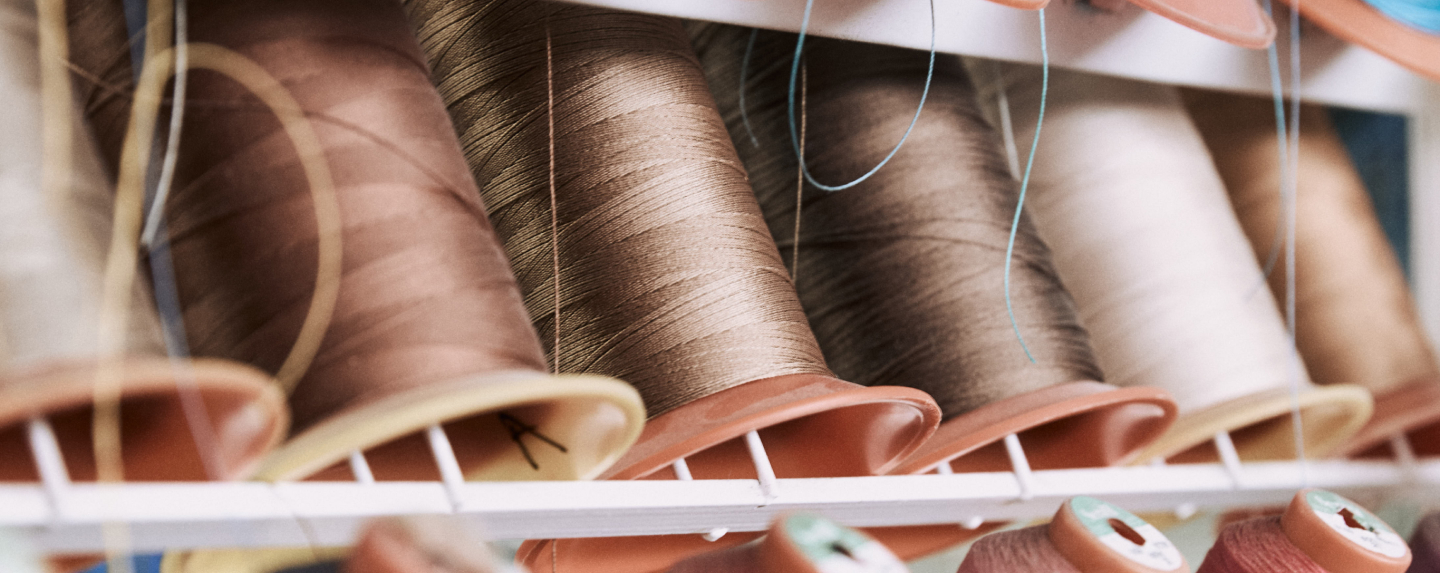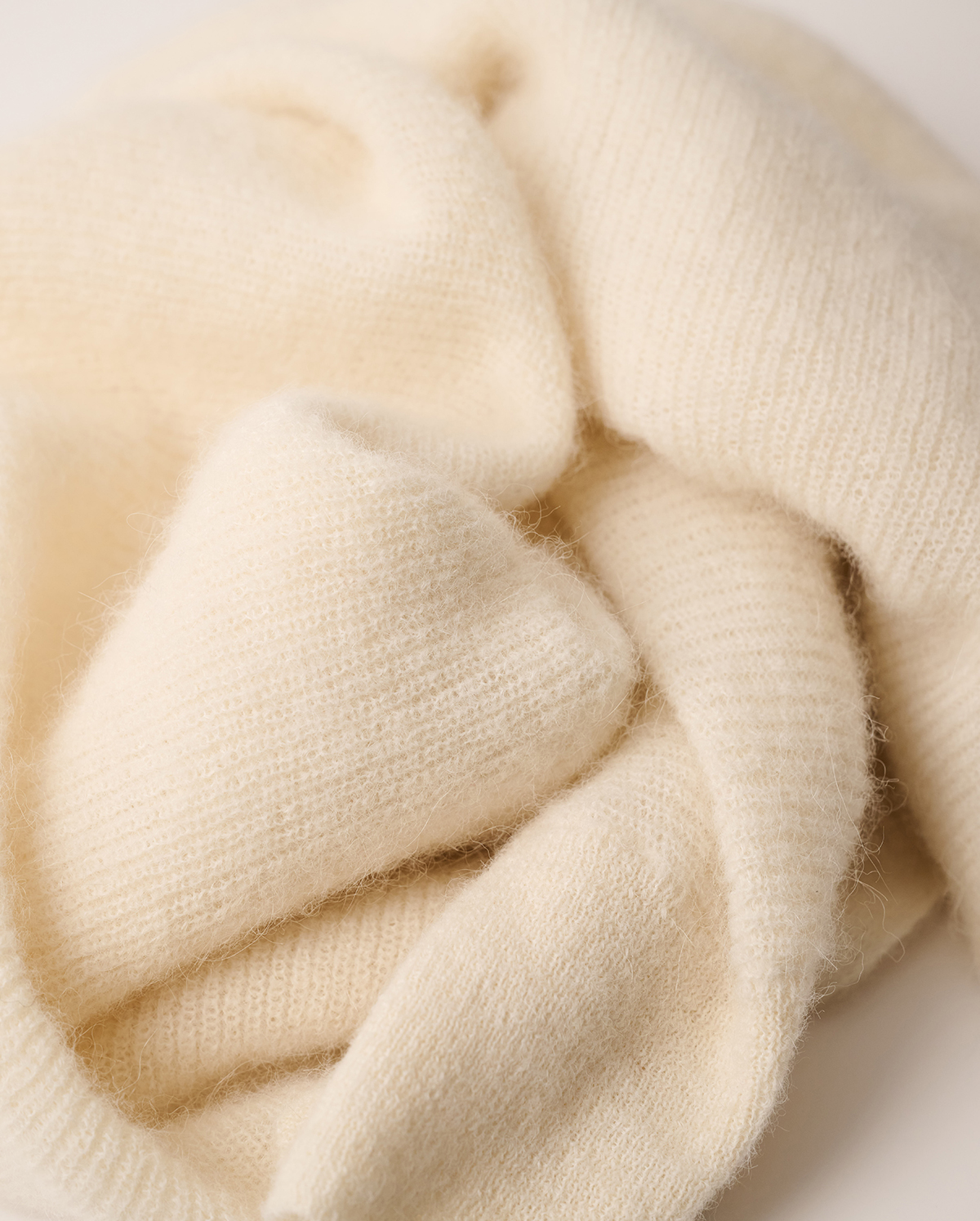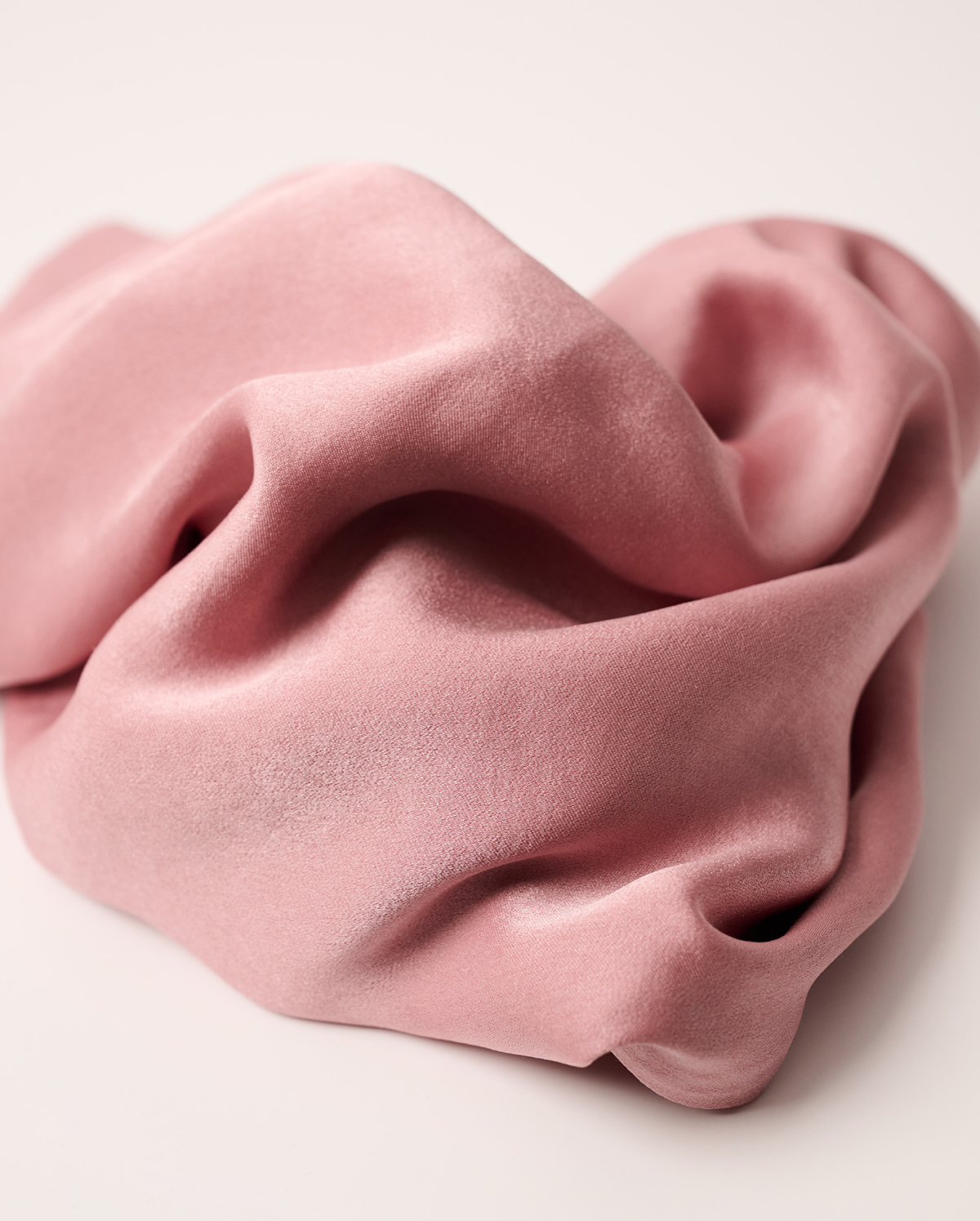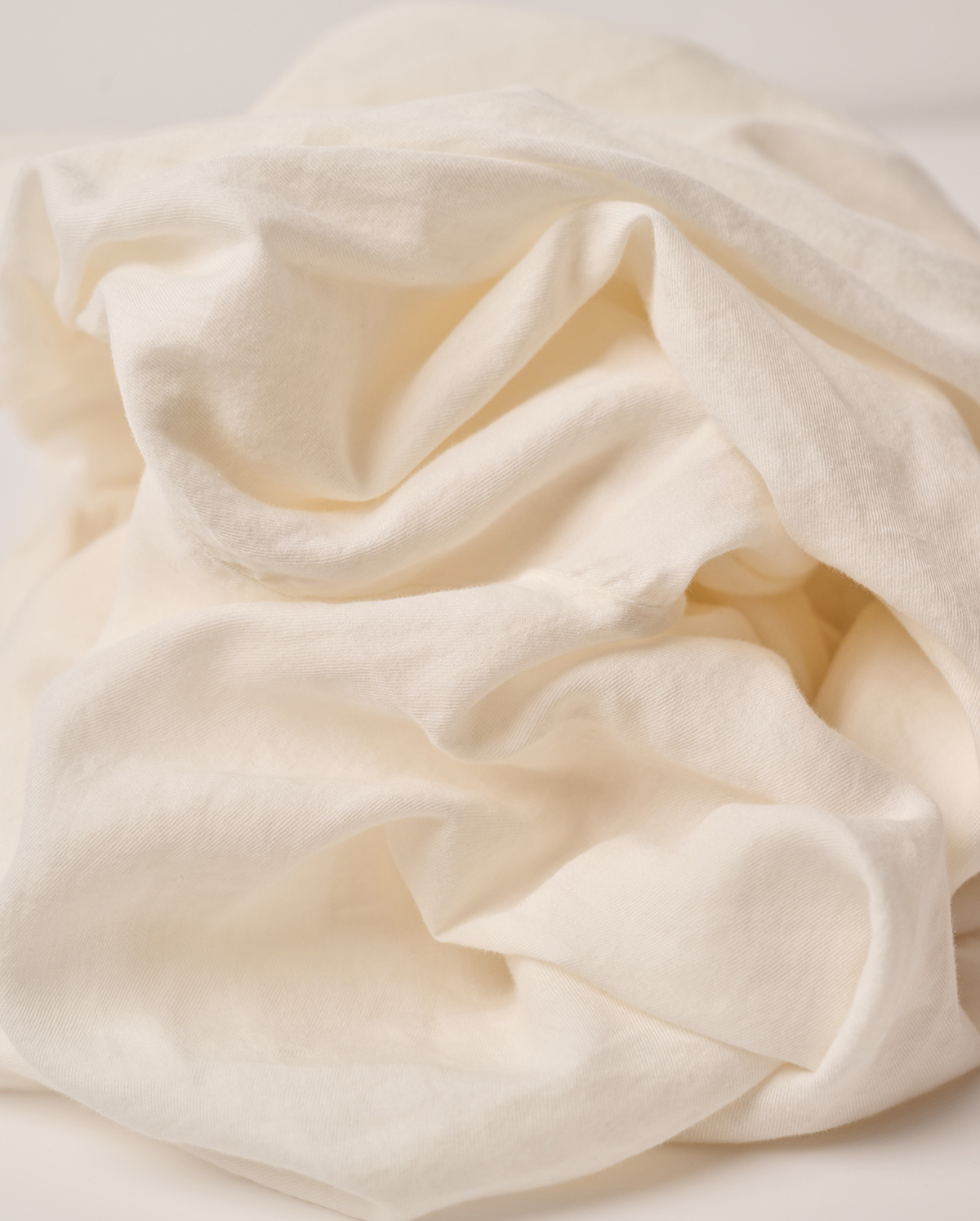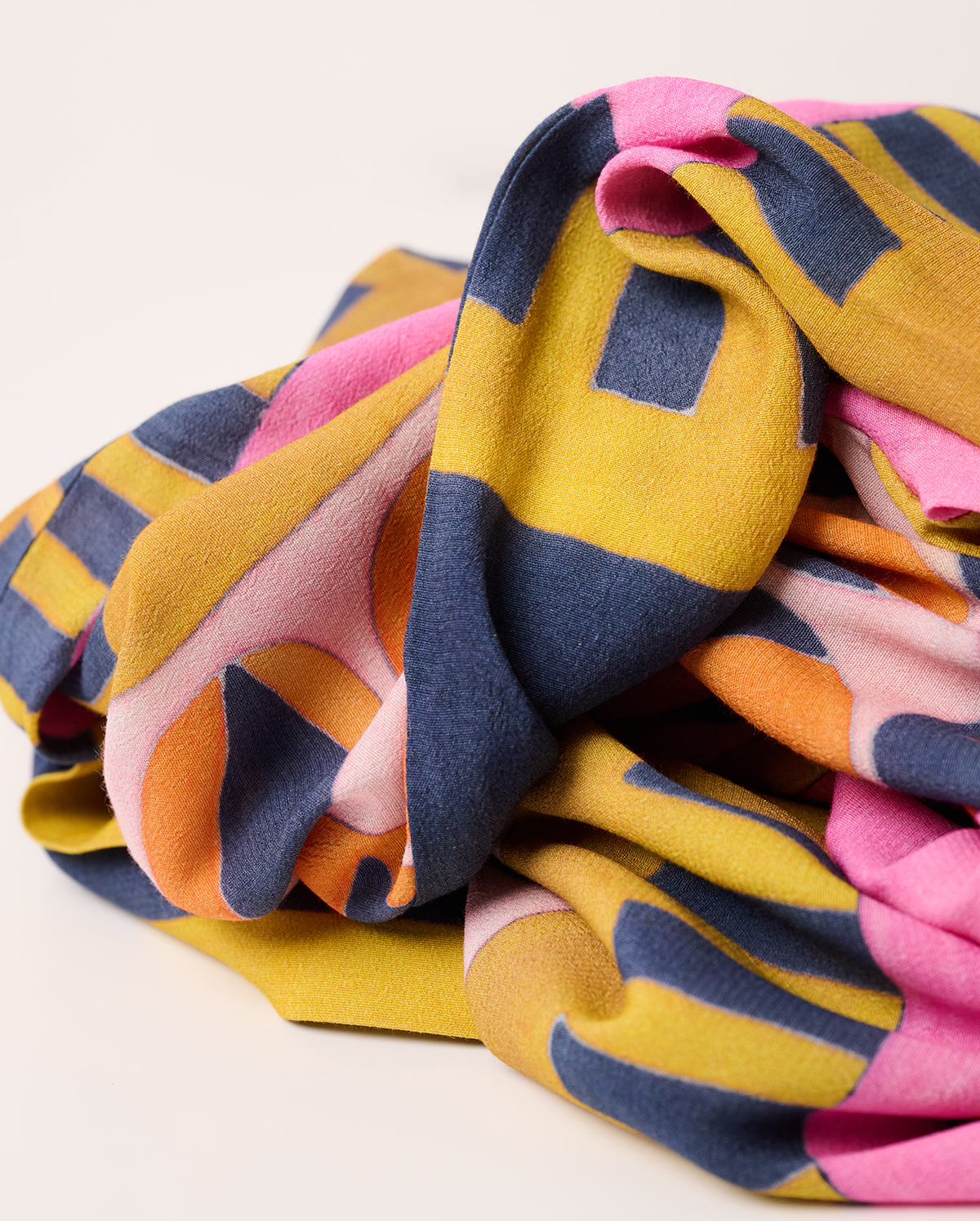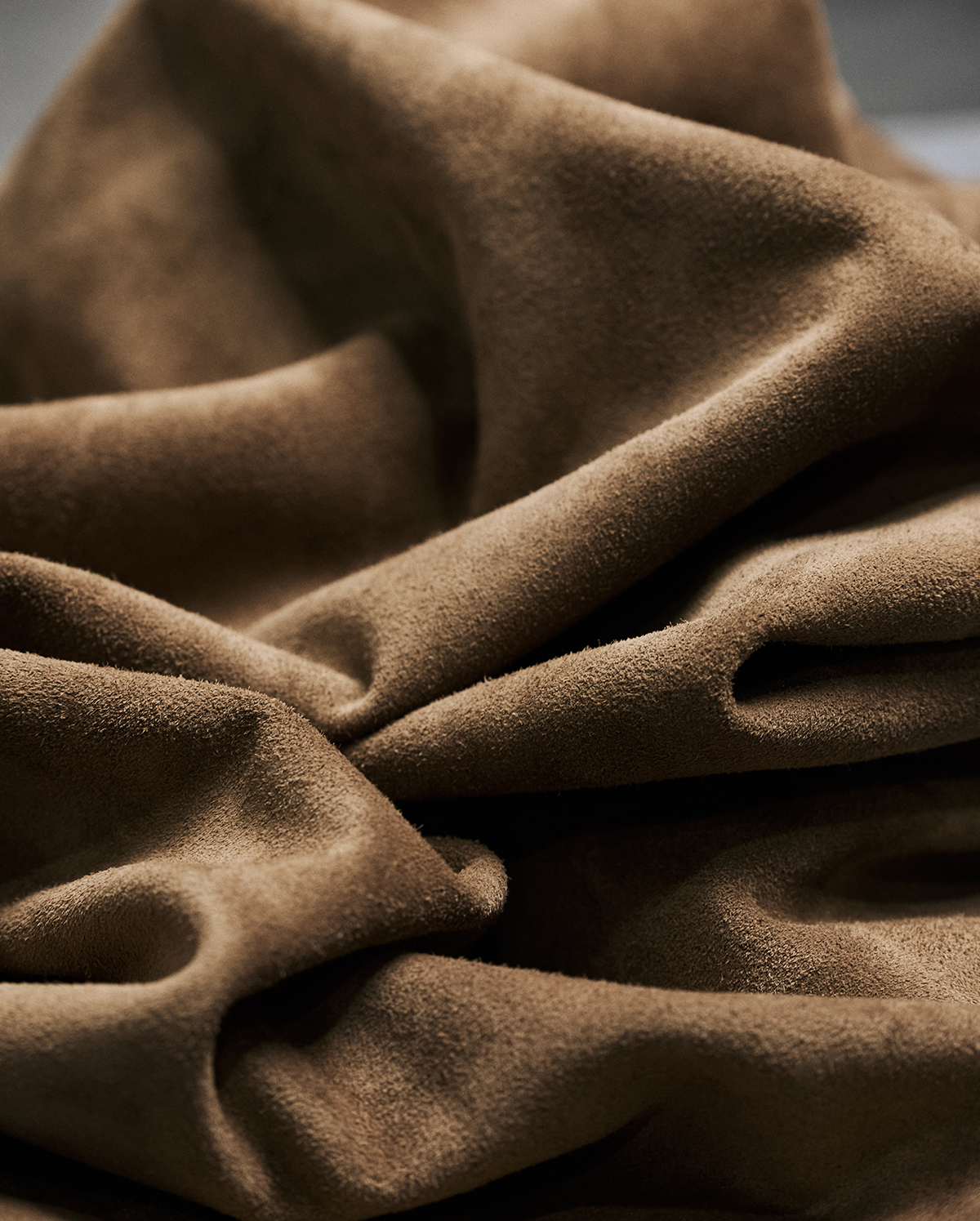MATERIALS
Choose materials that have less impact on humans, nature and animals.
From day one, we have chosen to work with quality materials to create pieces that not only stand the test of time, but also age beautifully.
To walk on the bright side means choosing high quality materials with the least possible environmental impact, ensuring animal welfare and sourcing only recycled synthetic materials.
In our Spring Summer 2024 collection
80%
of ba&sh items were made from a minimum of 70% certified or less environmentally impactful materials such as linen, raffia or hemp*
80%
of materials produced are certified
* With the exception of recycled fibres, which achieve a rate of 40%
In our Spring/Summer 2024 collection
86%
of cotton is certified organic
63%
of viscose is made from wood pulp from sustainably managed forests
70%
of wool comes from certified sources (guaranteeing animal welfare and sustainable pasture management, recycled or certified organic)
83%
of the polyester used has been recycled
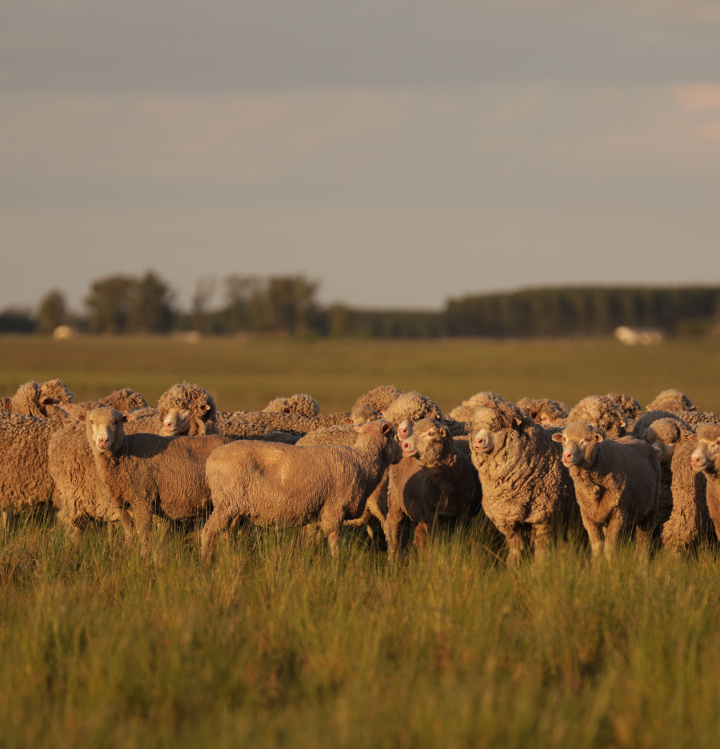
Our target:
100% certified materials by the end of 2025*
* 2027 for alpaca.
Raw materials account for 57% of our carbon footprint. Hence, they constitute an essential lever for reducing our impact.
To reduce our greenhouse gas emissions and help preserve biodiversity, we select our materials with care, always choosing the best possible option, such as organic or recycled fibers, or certified materials that guarantee animal welfare and sustainable pasture management, based on labels with the highest standards.
And when the best option is not possible - due to lack of supply, for instance - we select the next best alternative. For example, the distinct style and fit of certain pieces can only be achieved using synthetic materials. In such cases, we use recycled synthetic fibers wherever possible (see polyester section).
Our commitments
concerning materials
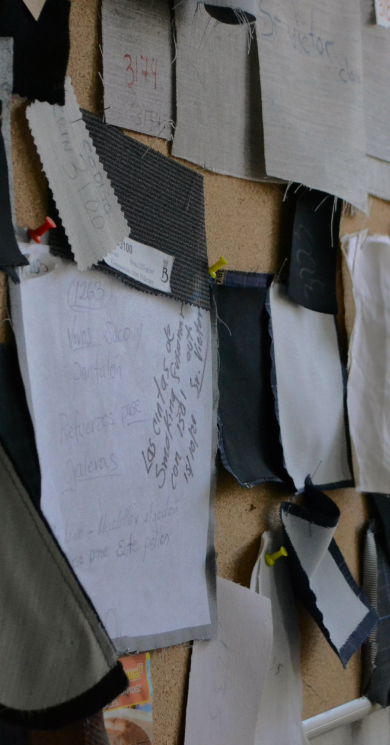
The result?
By using certified materials, featuring lower environmental impact than conventional materials, ba&sh is gradually reducing the carbon intensity of its materials mix, i.e. the quantity of carbon dioxide (CO₂e) emitted per kg of material. As a result, the carbon intensity of our materials mix has dropped 33% between 2019 and 2022*!
From 2021 to 2022, ba&sh achieved a 30% decrease in the average carbon footprint of its products.
ba&sh, committed to preserving forests
ba&sh has partnered with the environmental not-for-profit Canopy and is a signatory to both the CanopyStyle Initiative and Pack4Good programs.
Since the 2021 Winter collection, ba&sh works together with Canopy to identify viscose suppliers in our supply chain each season. By guaranteeing that no ba&sh product made from viscose contributes to deforestation, this project contributes to our goal of preserving forests. It reflects our commitment to making enlightened choices in selecting our materials: always prioritizing the best possible option.
88%
(in quantities produced) of viscose sourced from viscose producers classified as "Canopy-friendly - green shirt" in 2023 according to the Canopy’s Hot Button.
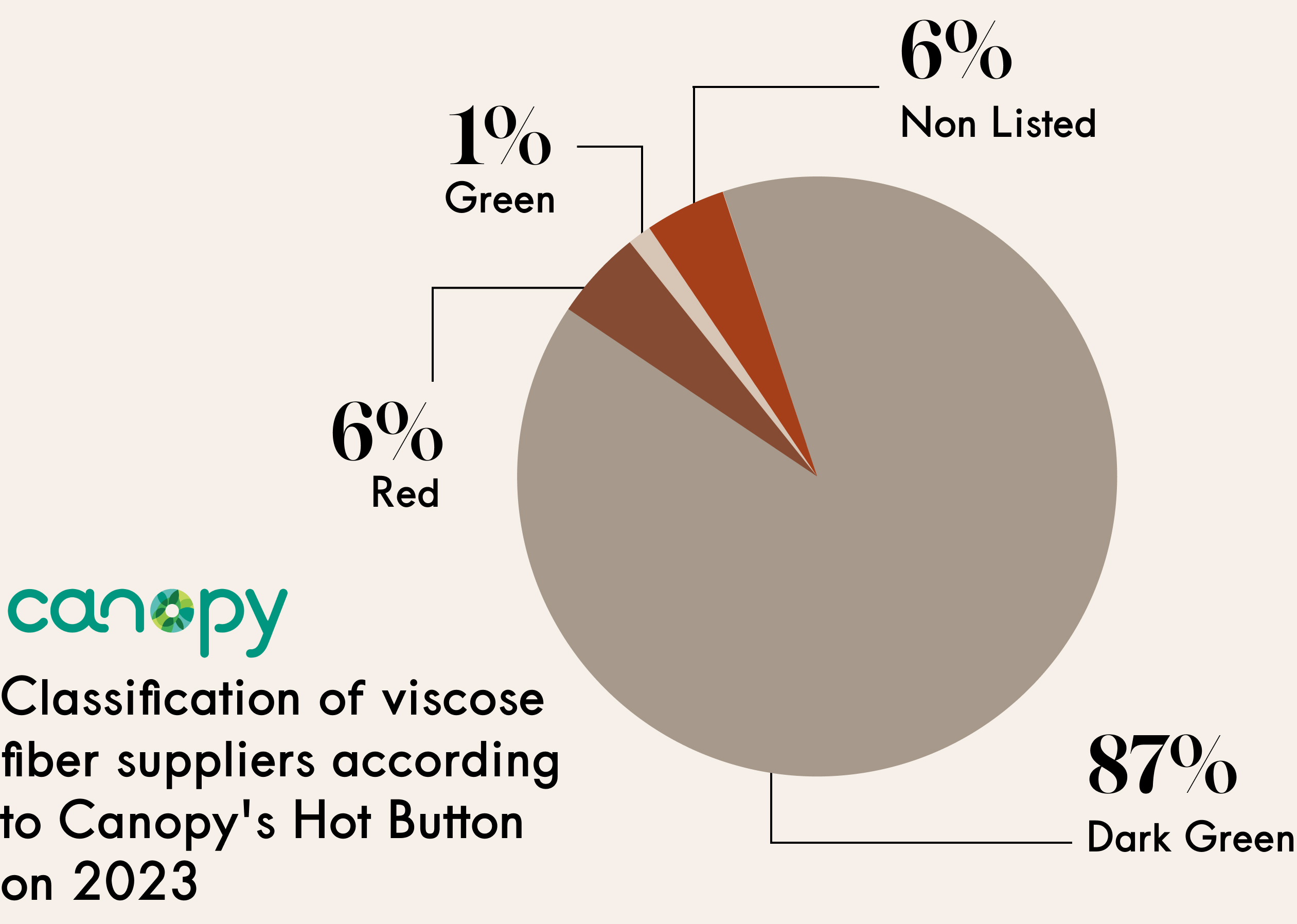

*Canopy's Hot Button Report is the primary fibre sourcing analysis tool for the fashion sector that focuses on forests. A green shirt rating signals producers who are successfully working to eliminate the use of ancient and endangered forests in their supply.
Our goal?
By 2024: 100% of viscose source from "Canopy-friendly - green shirt" viscose suppliers.
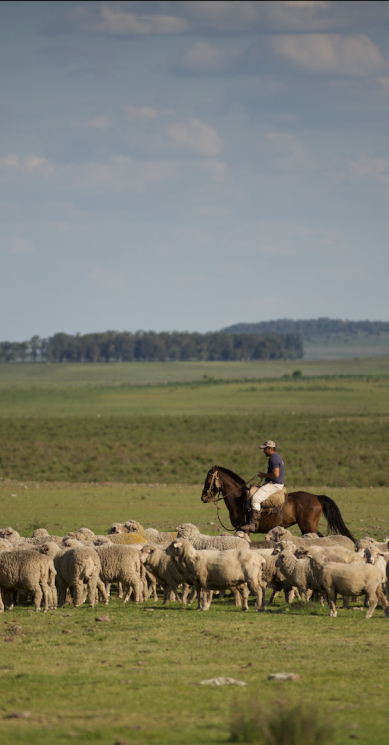
ANIMAL WELFARE
ba&sh has committed to never using materials that result from the suffering or killing of animals.
Furthermore, we actively support agricultural methods that prioritize animal well-being. Consequently, we have phased out several materials from our collections over the years, including some that featured in several of our best-selling items.
We work closely with NGO FOUR PAWS - an animal welfare nonprofit - to continually improve our animal welfare policy.
Objective : 100%
certified animal materials and fibers by 2025 (by 2027 for alpaca) that guarantee animal welfare and the sustainable management of pastures, or that the material is recycled

A ban on fur: ba&sh is a member of the Fur Free Retailer Program

A ban on exotic leather, feathers, down and angora

A ban on mulesing - a cruel and commonly practiced mutilation of lambs - mainly from Australia. ba&sh is a signatory to the Brand Letter of Intent initiated by FOUR PAWS.

100% recycled cashmere

ba&sh is also supporting sheep farms in their transition towards more regenerative farming practices
ba&sh, committed to regenerative agriculture
ba&sh is committed to developing and funding regenerative agriculture projects. In Uruguay, 3 sheep farms are currently transitioning towards regenerative farming practices, equivalent to 8 hectares in the process of regeneration.
Regenerative agriculture has the potential to fundamentally transform farming: regenerating soils, protecting biodiversity, eliminating synthetic inputs, ensuring social equity & improving the economic situation of farmers as well as animal welfare.


ba&sh is celebrating a year of partnership with Nativa.
To mark the occasion, we're revisiting the essential Medee dress with a composition that features 55% wool from regenerative practices and 45% organic cotton fibres.
More than a dress, it's another step towards change.
We've made great strides.
We believe in the power of action.
Our goal :
By 2025, to finance the transition of other farms in Uruguay, and to achieve 30% regenerative wool in our collections.
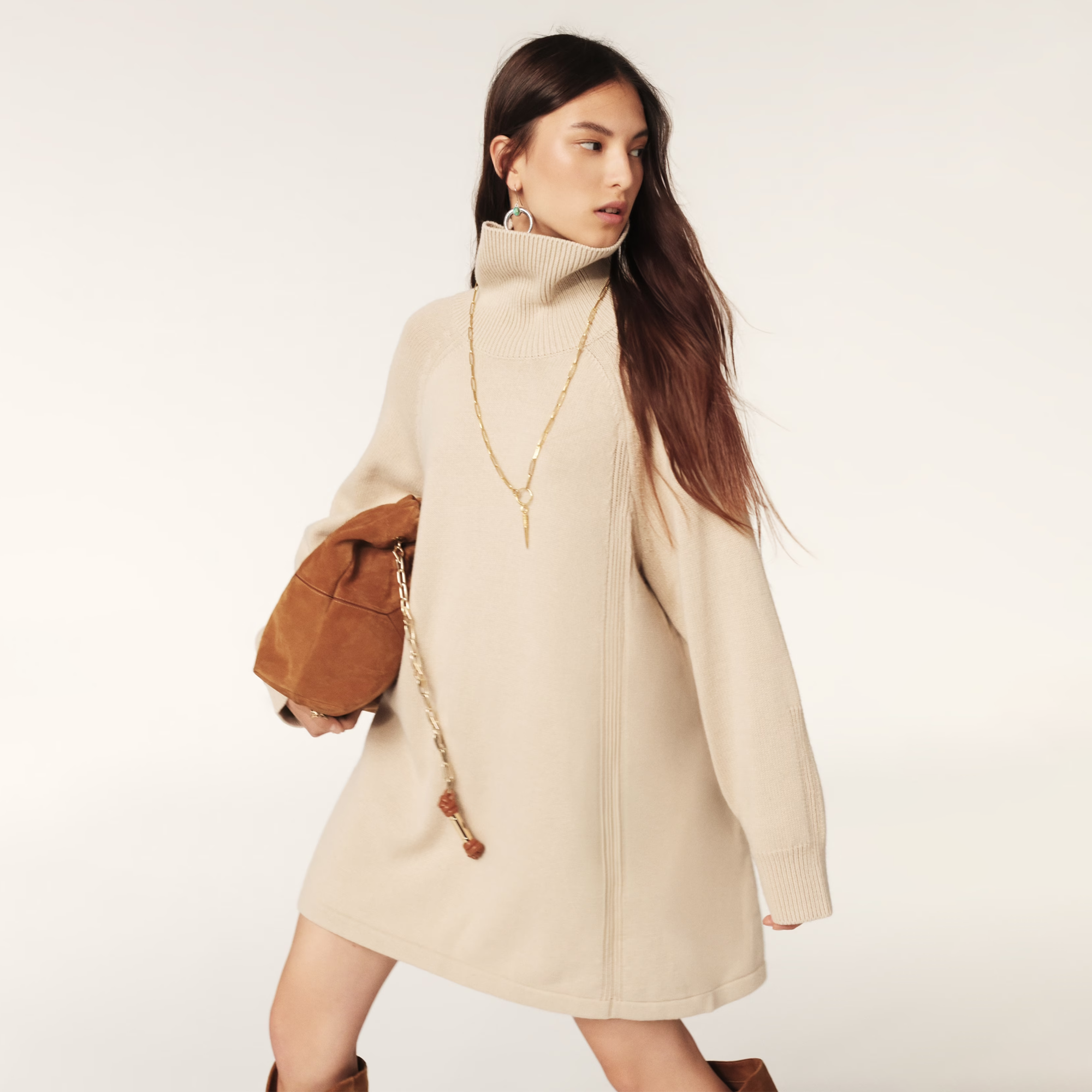

Frequently asked questions
Raw materials account for 57% of our carbon footprint. Hence, they constitute an essential lever for reducing our impact. To reduce our greenhouse gas emissions and help preserve biodiversity, we select our materials with care, always choosing the best possible option, such as organic or recycled fibres, or certified materials that guarantee animal welfare and sustainable pasture management, based on labels with the highest standards.
And when the best option is not possible - due to lack of supply, for instance - we select the next best alternative.
To find out more, visit the “Materials” section of our website.
Since 2019, ba&sh has assessed its carbon footprint yearly, using the GHG Protocol methodology across all its direct and indirect activities.
In 2022, ba&sh's activities generated 63,328 tonnes of CO₂e, equivalent to driving around the world 7,200 times or flying 31,500 times between Paris and New York.
Between 2021 and 2022, ba&sh reduced its carbon footprint by 15%, or 11,461 tonnes of CO₂e.
This reduction has been made possible thanks to 3 key action levers: increasing the proportion of certified materials in the composition of our products, reducing our use of air transport by 10% and finally using renewable energies for part of our shops and our warehouse.
To find out more, visit the "Planet" section of our website.
ba&sh has established a strict social compliance policy, which is appended to the General Terms and Conditions signed by all suppliers.
We require direct suppliers to conduct a social audit every 2 years. We recognise only the most demanding international standards: BSCI, SMETA, WCA, ICS. Suppliers are assessed on social performance criteria including: working conditions, remuneration, decent working hours, health and safety, rights to freedom of association and collective bargaining, environmental protection... Following the audit, ba&sh works together with suppliers in implementing corrective measures to address any non-compliance.
Since 2021, ba&sh has been a member of Amfori, a business association that helps companies improving working conditions in their supply chains. As of this year, we will also be conducting environmental audits in our denim laundries.
In 2023, 82% of our tier 1 production sites had been audited.
Our objective? By 2025, 100% of tier 1 and 2 production sites audited, and 30% of tier 3 sites.
To find out more, visit the "Partners" section of our website.
In 2023, 51% of our production came from medium-haul import regions (Europe, North Africa, Turkey) while 49% came from long-haul import regions (China, India). Between 2021 and 2023, 10% of our production was relocated from Asia to Europe and North Africa.
We have no intention of stopping here: by 2025, we aim to have 70% of our production sourced from medium-haul import regions (Europe, North Africa, Turkey) and 30% from long-haul import regions (China, India).
To find out more, visit the "Partners" section of our website or read our sustainability report.
B Corp™ certification is based on an assessment of a company's overall impact in five key areas: governance, the environment, employees, customers and community. This assessment is conducted using a comprehensive questionnaire which the company must complete itself, providing documents to support each claim.
To achieve certification, a company must score over 80 points. The evaluation process is demanding and rigorous. In the case of ba&sh, it lasted 18 months.
As a B Corp™, we’re part of a global community of businesses that meet high standards of social and environmental impact.
Our animal welfare policy has recently been updated in line with the recommendations of animal welfare nonprofit FOUR PAWS, who has also reviewed our policy. This document is appended to our General Terms and Conditions, which are signed by all suppliers. In concrete terms:
- ba&sh is committed to sourcing only certified animal materials by 2025 (RWS, RMS, GRS) - by 2027 for alpaca (RAS).
- The RWS, RMS and RAS labels guarantee animal welfare and sustainable pasture management at certified suppliers. The GRS label guarantees the recycled origin of recycled textile fibres.
- ba&sh has banned the use of fur and is a member of the Fur-Free Retailer Program.
- ba&sh prohibits the use of exotic leather (e.g. crocodile, snake, etc.).
- ba&sh has banned the use of down and feathers. Down jackets are now padded with a more eco-responsible alternative (REPREVE: recycled plastic bottles).
- ba&sh has banned the use of angora.
- ba&sh prohibits the practice of mulesing and is a signatory to the Brand Letter of Intent initiated by FOUR PAWS.
- ba&sh only uses recycled cashmere.
To find out more, visit the "Materials" section of our website or read our sustainability report.

